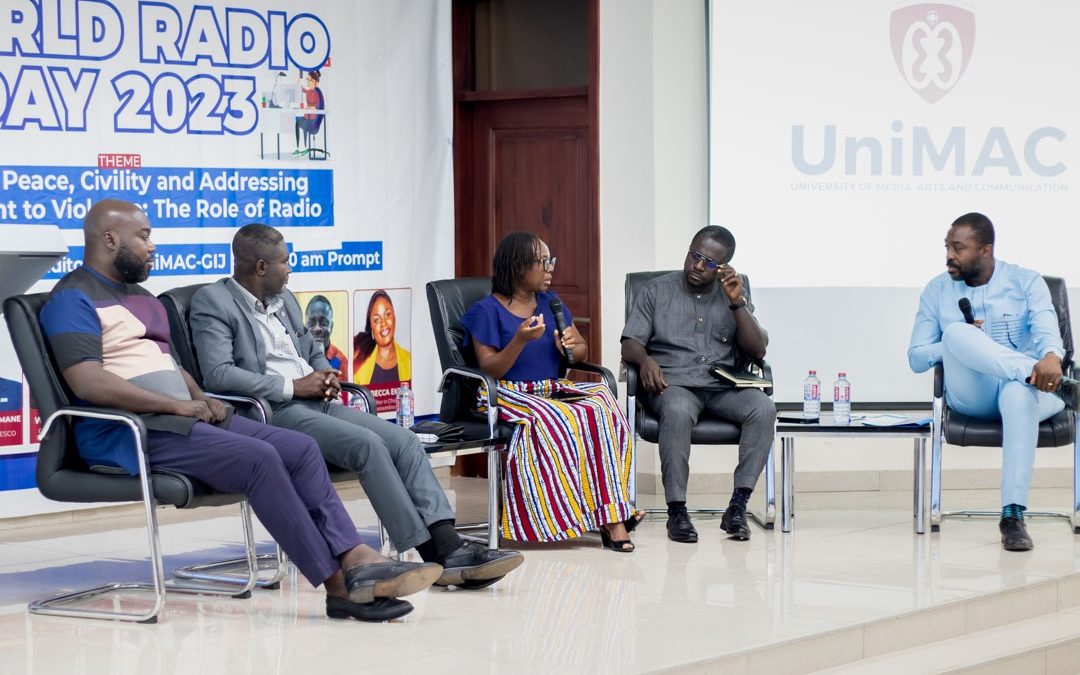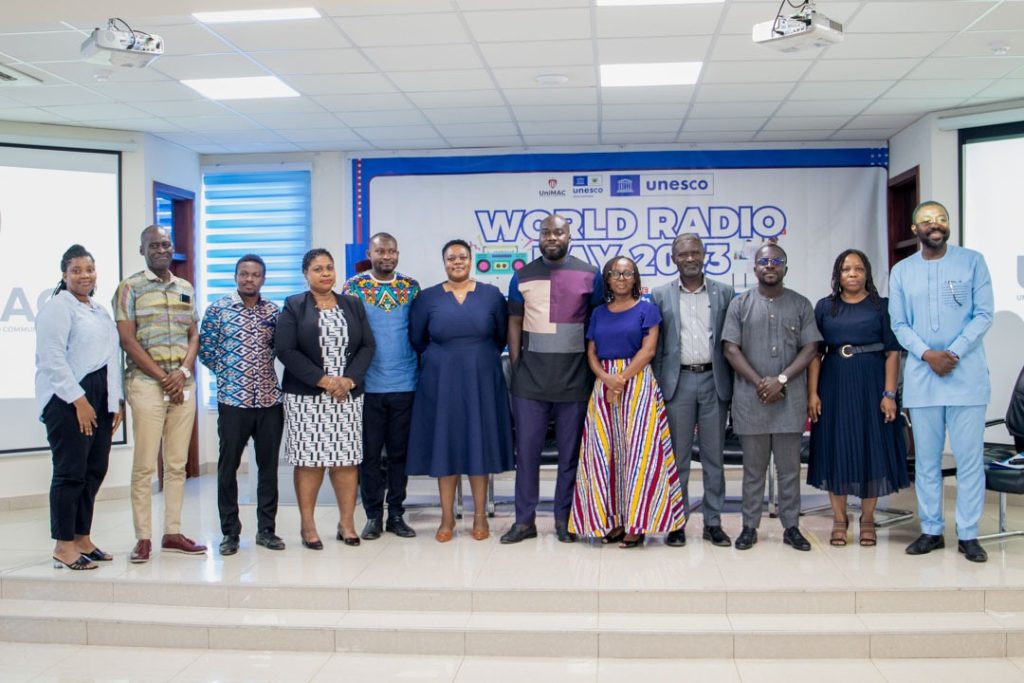- Login to ASPnet | Ghana Commission for UNESCO | Government Agency Responsible for the coordination of Ghana's contributions to and presence at UNESCO
WORLD RADIO DAY 2023

The world needs peace. What better way to voice it than using our own voices over our own airwaves?
Radio is the most widely used and accessible medium of news dissemination, and hence, the most effective medium with which we can reach a wider range of people with the message of peace. UNESCO recognizes the depth of impact radio can exert on countries and our world. For this reason, UNESCO designated 13th February as World Radio Day. Since the inception of World Radio Day in 2011 by the UNESCO Member States, we aim to continuously celebrate the legacy and impact of radio, which has over 100 years grown continuously significant. This World Radio Day, UNESCO highlights independent radio as a pillar for conflict prevention and peacebuilding. This is the rationale behind the theme; ‘Radio and Peace.’
This year, the Ghana Commission for UNESCO seeks to speak against propaganda, hate speech, and the political monopoly of radio in Ghana. The idea is to spread the word about the promotion of peace on the radio. With the upcoming elections in Ghana, and issues about radio igniting conflicts in neighboring countries like Rwanda, it is essential for us to advocate for peace on the radio.
In commemoration of World Radio Day, a symposium was held at UNIMAC-GIJ with Kwaku Asante of Media Foundation for West Africa, Dr. Yawa Solace Asafo of UNIMAC-GIJ, George Amoh of the National Peace Council, and Mr. Winston Amoah of Joy FM. The symposium was moderated by Kafui Dey under the theme, ‘forging peace, civility, and addressing incitement to violence; the role of radio.’
Mr. Kwaku Asante from MFWA warned journalists against the spread of disinformation, and called out radio stations that use indecent and abusive language. He mentioned that the MFWA has reportages on its website where defaulting media houses are published.
Mr. George Amoh spoke about the dangers Ghana is likely to face in the event of a country-wide conflict, considering the low level of safety in neighboring countries. He encouraged educational institutions to find innovative ways of building values in Ghanaian students to deter them from engaging in or inciting violence.
Mr. Winston Amoah admonished radio presenters and producers to regulate persons who are allowed on radio shows as guests. He said, ‘it’s not just about the clicks but about the messages people take away from your radio discussions.’

Dr. Solace Asafo called on the National Media Commission to implement a name-and-shame scheme for persons and radio stations who forward propaganda on the radio. She also said responsible agencies must demand retractions, rejoinders, or formal public apologies from persons who pass uncivilized comments on the radio.
Students of UNIMAC-GIJ were allowed to make contributions to the discussion. Among the suggestions that came up during the open floor session, were the penalization of persons who incite violence on radio, censorship of defaulting media houses, re-iterating journalistic standards and ethical values, providing a level of training for journalists and the strategic ways through which journalists can be streamlined without infringing on press freedom.
The Ghana Commission, along with other partners, including representatives from the National Media Commission and Ghana Journalists delivered solidarity messages at the event. Our solidarity message urged journalists, radio personalities, and the public to contest propaganda and hate speech, and to use radio as an instrument of peace. The event was graced with cultural dances and spoken word performances by GIJ students.
Prior to the official event, Ghana Commission had an interview with Mr. Kingsley Obeng-Kyereh, Head of GBC Uniiq fm, and Mr. Emmanuel Kwame Insaidoo, Senior Manager GBC, Accra. They shared their experience with radio over their years of work and their views on this year’s theme: ‘Radio and Peace’
This World Radio Day, the Ghana Commission for UNESCO urges Ghanaian radio presenters, radio personalities, and radio owners, to remember their power as gatekeepers, opinion leaders, boundary spanners, and drivers of the most salient conversations in society and the world. We hope that they recognize their ability and power to incite and shape public opinion, to start a war, and most importantly to build and sustain peace. We also hope that radio persons are reminded that their first loyalty is to the peace and safety of humanity and our world. Not to propaganda, not to political and partisan violence, not to false news and misleading content, not to hate and discrimination, not to personal and subjective opinions. But to our most fundamental survival requirement; Peace.
FIND OUR WORLD RADIO DAY THEME VIDEO AND INTERVIEWS HERE;
https://www.instagram.com/reel/CoUYfteAAmv/?utm_source=ig_web_copy_link
https://www.instagram.com/reel/ConPwsEgSlz/?utm_source=ig_web_copy_link
